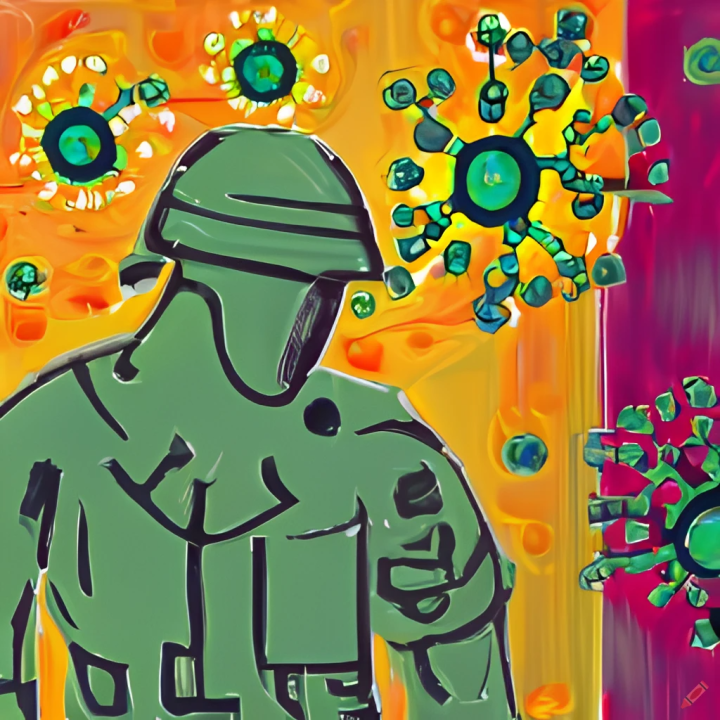“Soldiers” and “bad girls”: how language shapes health and well-being

SDG#3: Good Health and Well-being: Ensure healthy lives and promote well-being for all at all ages.
Two weeks ago, RESPONSUS (Responsibility, Language and Communication) started a series of blogs to show how language and communication are crucial in shaping sustainability. Last week, Matt Drury revealed the language politics surrounding food. This week, let’s shine some light on why language matters when we talk about health and well-being (SDG#3).
Have you wondered, for example, how language shaped your ideas and perceptions about the threat of Covid-19? Why does it matter if we talk about a pandemic as a ‘journey’, a ‘natural disaster’, or as a ‘fight’? Because each of these metaphors activates different ideas, and justifies different actions.
No wonder many world leaders were often criticised for using metaphorical war language and visuals. In a war, it is justified to install a curfew and give full support to the soldiers fighting for the nation’s freedom. But a virus is not a foreign army. Is this metaphor effective? Or damaging? Some research shows that using the language of “fighting”, “soldiers” and “frontline” persuades certain groups of people to support very strict Covid-19 measures, especially those people who rely on alternative news sources. But other metaphors may be more useful to mobilise society – like “fighting fire” (as this research found). Language – and here specifically metaphors – shapes our reasoning and decision-making.
And while language use in the political arena may have gotten most of the limelight, language affects our health and well-being in more subtle ways. For instance, violent language can be so powerful that patients suffering from cancer prefer more aggressive forms of cancer treatment over preventive types of behaviour. War metaphors may work differently for different patients, offering both empowering and disempowering frames: they allow patients to see themselves as a powerful fighter who defeats cancer or, contrastingly, as a passive victim losing the fight from their enemy.
But there are countless ways in which the power of language can manifest in the context of health and well-being. Think about how we use our words to talk social expectations, approvals and disapprovals into being. We use language to stigmatise groups and behaviours. In many cultures, (young) women are being depicted by their community as “bad girls” for being sexually active, potentially affecting their (mental) health and health behaviours. Or, using a different kind of framing, patients suffering from HIV/AIDS, which no longer needs to be a lethal disease, could be “living with” AIDS instead of “dying from” AIDS. By no longer seeing their diagnosis as a “death sentence”, patients can cope with it better.
Meaning-making in language and culture is important, whether we talk about grand political speeches, subtle societal references or the intimacy of the doctor’s office. If we become aware of these mechanisms, we can open the way to more fruitful and inclusive language use – and with it a great chance for a healthier society!
Join us again next week for SDG#12 Responsible Consumption and Production, by Massih Zekavat!

